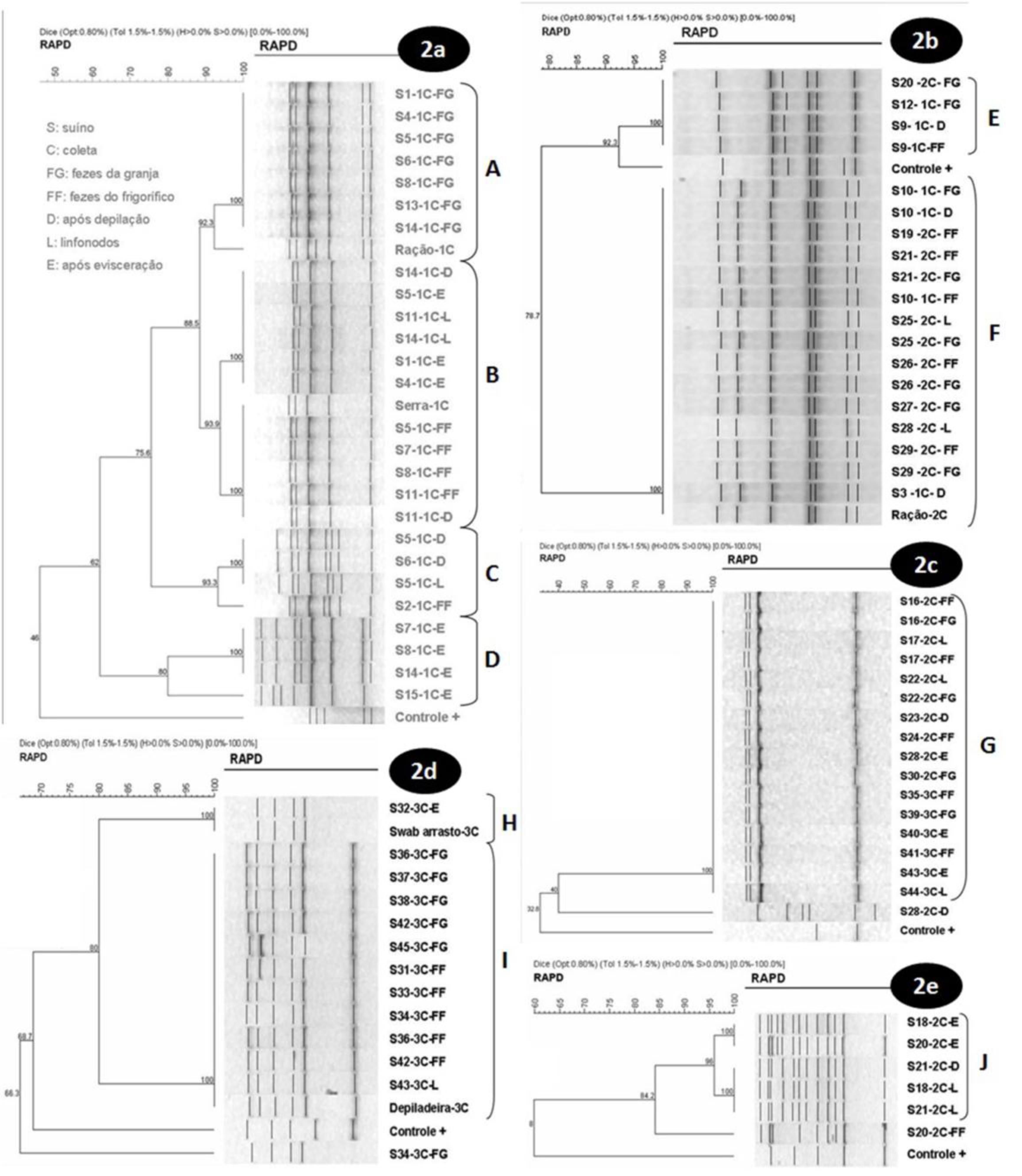The diversification of industrial food production of swine origin and trade of animals and their derivatives for human consumption may be important disseminators of serovars of Salmonella spp. in the food chain. This study aimed to evaluate 86 strains of Salmonella spp. isolated form in the finishing and slaughter of pigs, the occurrence of three virulence genes (invA, agfa and lpfA), as well as the genetic similarity between them. The occurrence of gene invA was observed in 100% of the samples. The gene lpfA was detected in 80.23% (69/86) strains and is not detected in S. Panama, but present in all strains of S. Infantis. The gene agfA was detected in 63.95% (55/86). S. Agona was positive for all virulence genes studied. The analysis of homology between the different serovars grouped the isolates in clusters. The similarity was regardless of the location of isolation, demonstrating the presence of clones along the production chain and that there are multiple sources for the infection of animals, such as feed, and cross-contamination of carcasses. A survey of virulence genes and evaluation of gene proximity allow characterization and better understanding of Salmonella strains circulating in the pig production chain, thus being able to support control measures during the production process in order to ensure consumer health.
swine; genes; RAPD-PCR; Salmonella; virulence


